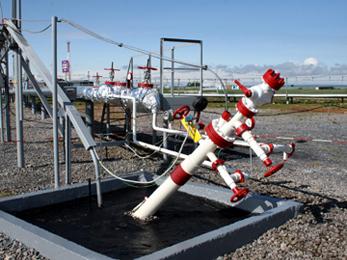Testing of technologies for production of extra-viscous oil were started at Mordovo-Karmalskoye field in 1978 with application of the following methods: in-situ combustion, steam and gas stimulation and high-frequency heating using vertical wells.
Pilot operations at Ashalchinskoye field with application of a modified steam assisted gravity drainage technology for oil recovery through dual wellhead horizontal wells started in 2006.
Currently, there are 6 pairs of horizontal wells drilled (one well for injection of steam and another one for extraction of the heated raw product). 2,890 tons of extra-viscous oil were produced in October with the average total daily production rate exceeding 92 tons. The ratio of steam injection for oil production reached the optimum value for this technology: three to one.
New technologies were introduced in the wells for limiting sand production and controlling distribution of steam in the wellbore for the purpose of ensuring rational exploitation of deposits. It is also planned to test other innovative technologies, including steam injection and recovery of oil through horizontal wells by alternating injection and production, injection of hot water, fire flooding and application of binary mixtures for heating the reservoir.
Significant reserves of extra-viscous oil are an essential resource asset of TATNEFT and a promising source of increasing production. In aggregate more than 450 deposits and fields of extra-viscous oil (EVO) have been identified in Tatarstan. Its resources are estimated to amount to 7 billion tons. The main constraint of development of these reserves is the lack of tax incentives from the state, because the cost of recovery of extra-viscous oil is significantly higher than production costs of conventional oil. In addition, special treatment and processing of this type of the raw product is required. This kind of processing installations is not available in Russia.
TATNEFT has elaborated a feasibility study for development of 50 primary extra-viscous oil deposits with total reserves and resources of 200 million tons. However, it is worth noting that in spite of the fact that some steps have been taken in exempting the extra-viscous oil production from the minerals extraction tax and obtaining benefits on taxes flowing into the budget of the Republic of Tatarstan, TATNEFT considers it necessary to develop the system of state support for development of similar deposits, as it is done in the U.S.A., Canada and Venezuela.
12 Февраля 2026 | четверг | 10:09


